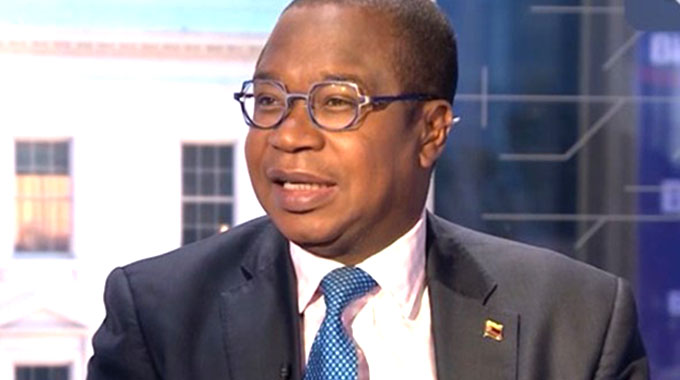Infrastructure support pays off

Blessings Chidakwa
Herald Reporter
Government has managed to invest in essential infrastructure and push spending on roads, water, energy and housing despite setbacks caused by the Covid-19 pandemic.
In the National Public Infrastructure Investment Programme for 2021, Finance and Economic Development Minister Mthuli Ncube said in the Transitional Stabilisation Programme, which ends this month, infrastructure spending and delivery was made a major anchor of the country’s economic development strategy.
“Targeted investments of US$26 billion in new infrastructure were envisaged during the programme period, to be funded from increased fiscal development expenditures and the private sector,” he said.
“Upscaling of investments in basic infrastructure services at community level was to be financed through the Inter-Government Fiscal Transfers allocation (devolution funds), being disbursed to provincial councils and local authorities as enshrined in the Constitution.”
Despite hurdles during the programme, planning and execution of projects improved, with some sectors now adopting a longer-term view to project planning, execution and delivery.
“Roads have been constructed across provinces, and a medium sized dam delivered every year, while other new infrastructure has been completed in most areas,” he said.
Prof Ncube said the fiscal outlays under the 2020 Zimbabwe Infrastructure Investment Programme amounted to $31,2 billion in the first nine months.
“Through the targeted approach and ring fencing of the limited resources on fewer projects, buttressed by the 100-day planning philosophy, execution and activity on the selected projects improved, particularly in the water and sanitation, transport and energy sectors,” he said.
“Prioritisation has, however, meant that the stock of stalled projects, carried over from previous years, could not be significantly reduced as envisaged.”
Implementation of projects under the Road Development Programme was prioritised with disbursements of $7 billion by the end of September including $5,8 billion paid to five contractors undertaking works on the Harare-Beitbridge Road project.
“As at November 20, 2020, 115km had been completed against the 200km target set for the year,” he said.
“Restoration works for Cyclone Idai damaged road infrastructure have largely been completed, with 85km of road being re-gravelled, 63km resealed, 40km rehabilitated, as well as nine bridges.”
On water and sanitation, Prof Ncube said $3,2 billion was channelled towards construction of dams, with priority being given to five dams, in line with the objective of progressively increasing water storage capacity, as part of the country’s drought-proofing strategy.
“For the Rural Water and Sanitation sub sector, $287,9 million was disbursed to ZINWA and $75,9 million to DDF for the drilling of at least 261 boreholes, covering quarantine and isolation centres, schools, including those communities facing acute water shortages,” he said.
Minister Ncube said at least $1,3 billion was spent on buildings, covering purchase and construction of office space and institutional accommodation.
Among the projects undertaken were construction of Chinhoyi, Lupane and Mt Darwin magistrates courts, Bristol House Commercial and Cape to Cairo Masters’ House and the purchase of the National Prosecuting Authority building in Harare that will house institutions involved in combating crime and corruption.
In the energy sector, Prof Ncube said progress on the Hwange 7 and 8 Expansion Project was now 37 percent complete, despite delays in the shipment of construction materials and equipment made in China.
In the health sector, more than $500 million had been channelled towards construction and rehabilitation of isolation and treatment centres, as well as equipment and including upgrading of non-Covid-19 health institutions that were meant to ensure continuity of care to citizens.
Prof Ncube said Government had this year invested $210 million under the National Accelerated Irrigation Rehabilitation and Development Programme, which sought to exploit irrigable potential in every district as part of drought proofing strategy.
In line with the Public Investment Management Guidelines, a more robust and streamlined approach to project preparation and execution, together with fair and transparent procurement processes, were developed to ensure efficiency, affordability and sustainability of public infrastructure services.







Comments